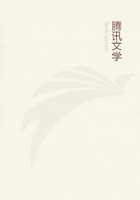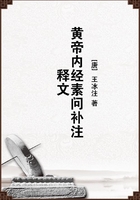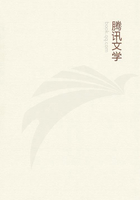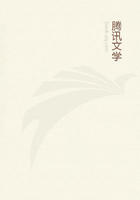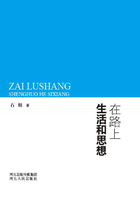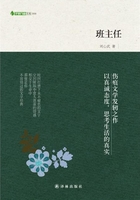Proof--If a man begins to hate that which he had loved, more of his appetites are put under restraint than if he had never loved it. For love is a pleasure (III. xiii. note) which a man endeavours as far as he can to render permanent (III. xxviii.); he does so by regarding the object of his love as present, and by affecting it as far as he can pleasurably; this endeavour is greater in proportion as the love is greater, and so also is the endeavour to bring about that the beloved should return his affection (III. xxxiii.). Now these endeavours are constrained by hatred towards the object of love (III. xiii. Cor. and III. xxiii.); wherefore the love (III. xi. note) will for this cause also be affected with pain, the more so in proportion as his love has been greater; that is, in addition to the pain caused by hatred, there is a pain caused by the fact that he has loved the object; wherefore the lover will regard the beloved with greater pain, or in other words, will hate it more than if he had never loved it, and with the more intensity in proportion as his former love was greater. Q.E.D.
XXXIX. He who hates anyone will endeavour to do him an injury, unless he fears that a greater injury will thereby accrue to himself; on the other hand, he who loves anyone will, by the same law, seek to benefit him.
Proof--To hate a man is (III. xiii. note) to conceive him as a cause of pain; therefore he who hates a man will endeavour to remove or destroy him. But if anything more painful, or, in other words, a greater evil, should accrue to the hater thereby --and if the hater thinks he can avoid such evil by not carrying out the injury, which he planned against the object of his hatred --he will desire to abstain from inflicting that injury (III. xxviii.), and the strength of his endeavour (III. xxxvii.) will be greater than his former endeavour to do injury, and will therefore prevail over it, as we asserted. The second part of this proof proceeds in the same manner. Wherefore he who hates another, etc.
Q.E.D.
*****Note--By "good" I here mean every kind of pleasure, and all that conduces thereto, especially that which satisfies our longings, whatsoever they may be. By "evil," I mean every kind of pain, especially that which frustrates our longings. For I have shown (III. ix. note) that we in no case desire a thing because we deem it good, but, contrariwise, we deem a thing good because we desire it: consequently we deem evil that which we shrink from; everyone, therefore, according to his particular emotions, judges or estimates what is good, what is bad, what is better, what is worse, lastly, what is best, and what is worst. Thus a miser thinks that abundance of money is the best, and want of money the worst; an ambitious man desires nothing so much as glory, and fears nothing so much as shame. To an envious man nothing is more delightful than another's misfortune, and nothing more painful than another's success. So every man, according to his emotions, judges a thing to be good or bad, useful or useless. The emotion, which induces a man to turn from that which he wishes, or to wish for that which he turns from, is called "timidity," which may accordingly be defined as "the fear whereby a man is induced to avoid an evil which he regards as future by encountering a lesser evil" (III. xxviii.). But if the evil which he fears be shame, timidity becomes "bashfulness."
Lastly, if the desire to avoid a future evil be checked by the fear of another evil, so that the man knows not which to choose, fear becomes "consternation," especially if both the evils feared be very great.
XL. He, who conceives himself to be hated by another, and believes that he has given him no cause for hatred, will hate that other in return.
Proof--He who conceives another as affected with hatred, will thereupon be affected himself with hatred (III. xxvii.), that is, with pain, accompanied by the idea of an external cause. But, by the hypothesis, he conceives no cause for this pain except him who is his enemy; therefore, from conceiving that he is hated by some one, he will be affected with pain, accompanied by the idea of his enemy; in other words, he will hate his enemy in return. Q.E.D.
*****Note--He who thinks that he has given just cause for hatred will (III. xxx. and note) be affected with shame; but this case (III. xxv.) rarely happens. This reciprocation of hatred may also arise from the hatred, which follows an endeavour to injure the object of our hate (III. xxxix.). He therefore who conceives that he is hated by another will conceive his enemy as the cause of some evil or pain; thus he will be affected with pain or fear, accompanied by the idea of his enemy as cause; in other words, he will be affected with hatred towards his enemy, as I said above.
Corollary I--He who conceives, that one whom he loves hates him, will be a prey to conflicting hatred and love. For, in so far as he conceives that he is an object of hatred, he is determined to hate his enemy in return. But, by the hypothesis, he nevertheless loves him: wherefore he will be a prey to conflicting hatred and love.
Corollary II--If a man conceives that one, whom he has hitherto regarded without emotion, has done him any injury from motives of hatred, he will forthwith seek to repay the injury in kind.
Proof--He who conceives, that another hates him, will (by the last proposition) hate his enemy in return, and (III. xxvi.) will endeavour to recall everything which can affect him painfully; he will moreover endeavour to do him an injury (III. xxxix.).
Now the first thing of this sort which he conceives is the injury done to himself; he will, therefore, forthwith endeavour to repay it in kind. Q.E.D.
*****Note--The endeavour to injure one whom we hate is called "Anger;" the endeavour to repay in kind injury done to ourselves is called "Revenge."
XLI. If anyone conceives that he is loved by another, and believes that he has given no cause for such love, he will love that other in return. (Cf. XIII. xv. Cor., and III. xvi.)

